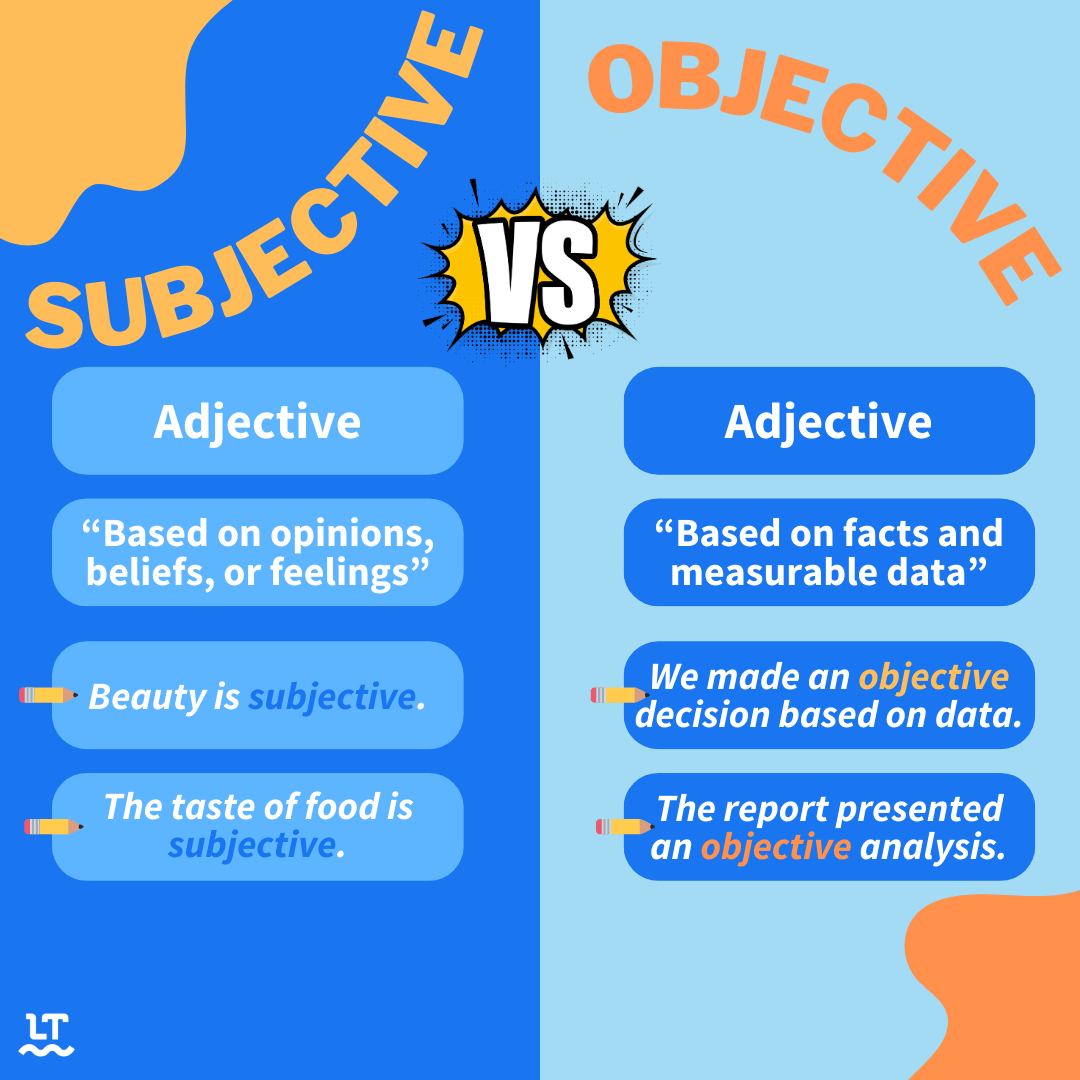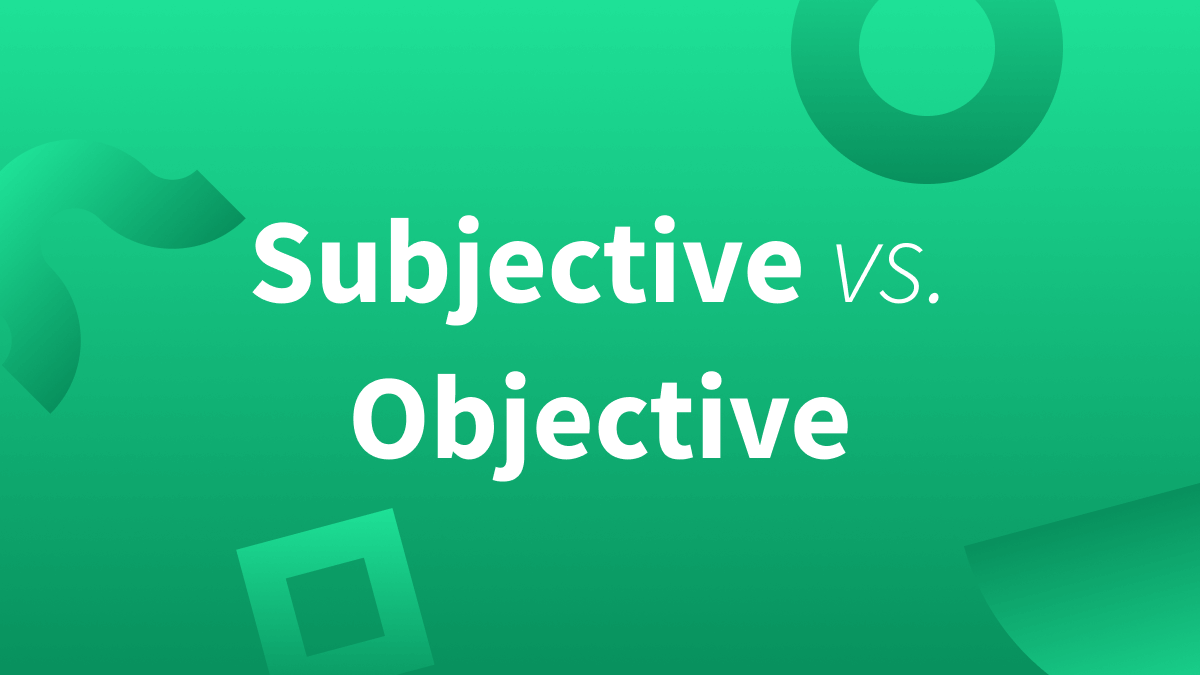What’s the Difference Between “Subjective” and “Objective”?
Subjective relates to personal viewpoints, experiences, or perspectives, whereas objective refers to factual data that is not influenced by personal beliefs or biases.
- Subjective statement: The cake is delicious.
- Objective statement: The cake contains 250 calories per serving.
Facts vs. Feelings
You’ve probably heard of the terms subjective and objective, but do you know what they mean? They relate to how something is evaluated or perceived, but one revolves around facts, and the other around feelings.
Below, we’ll explain what subjective and objective mean, and provide examples of each, so you can fully understand the difference between these words.
Let’s begin!
What Does “Subjective” Mean?
If you’re looking at something subjectively, that means you’re using your opinions, feelings, or perception to shape your thoughts about that subject. In other words, subjectivity is influenced by one’s own emotions and beliefs and therefore varies from person to person.
Take a look at the following statement:
That painting is beautiful.
That’s a subjective statement because what’s beautiful to one person can be ugly to another. Everyone’s perception of what beautiful means is different.
Here’s another example of a subjective statement:
Blueberries are delicious!
Not everyone thinks blueberries are delicious. The statement above is based on opinions, not facts, making it subjective.
Now that we’ve covered what subjective means, let’s go over what objective means.
What Does “Objective” Mean?
If something is objective, that means it is based on facts and measurable data. An objective statement can be proven with evidence and cannot be influenced by anyone’s personal beliefs or emotions.
Let’s take a look at the following example:
The Earth revolves around the sun.
The statement above is objective because it has been verified and proven to be factual. Even if this objective statement makes you sad or angry, and even if you don’t believe it, the objective fact remains that the Earth revolves around the sun.
The boiling point of water is 100 degrees Celsius.
Again, it doesn’t matter what you feel about the statement above; it doesn’t even matter where you are in the world; the statement above has been observed, experimented on, and verified by scientists over and over again.
Using “Objective” as a Noun
We should note that objective can also function as a noun that means “a goal or something you are trying to achieve.”
- Our objective is to gain as many clients as possible.
“Objective” vs. “Subjective” Examples
Below are a few more examples of similar statements, but one is subjective, while the other is objective.
“Subjective” and “Objective”: How To Remember the Difference
Here’s a trick to help you remember the difference between subjective and objective.
- Subjectivity is self-centered and based on speculations, sentiments, and experiences.
- Objectivity is outward-focused and based on observable facts and data that can be proven true.
Here’s one last objective statement for the road:
- LanguageTool is a multilingual writing assistant that uses advanced technology to correct errors and provide stylistic suggestions to help you compose clear, confident, and impactful texts.
Start correcting your writing today!


